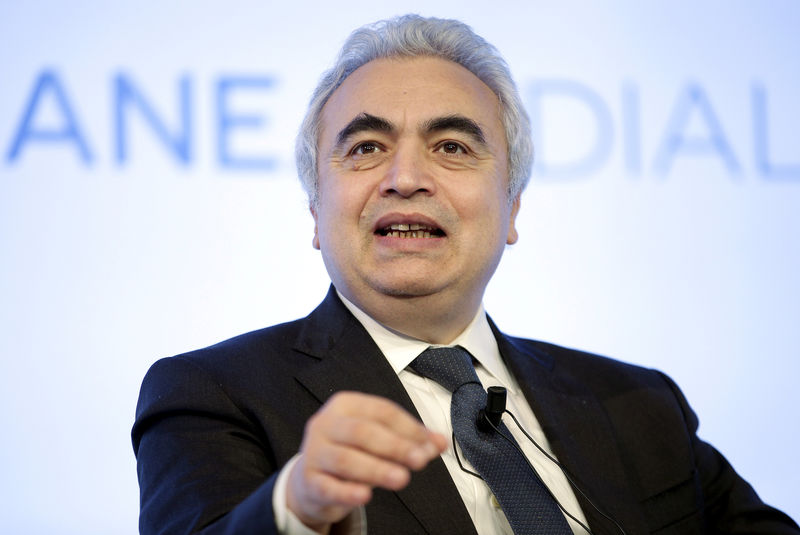By Padraic Halpin
DUBLIN (Reuters) - The International Energy Agency (IEA) is very concerned about the impact that tensions in the Middle East may have on global energy security and will act if there is any physical disruption to supplies, its executive director said on Monday.
Oil prices rose on Monday, extending large gains last week that were prompted by tensions between the United States and Iran, although concerns about the possibility of weakening demand kept a lid on gains.
Strong growth in the price of U.S. shale oil has also contained stronger increases, the IEA's Fatih Birol added on Monday.
"We are monitoring the situation very closely and are very worried. In case of physical disruption, we are ready to act in an appropriate way," Birol told a news conference at the IEA's annual energy efficiency conference in Dublin.
Last week, benchmark Brent crude climbed 5% and U.S. crude surged 10% after Iran shot down a U.S. drone on Thursday in the Gulf, adding to strains stoked by attacks on oil tankers in the area in May and June that Washington has blamed on Iran.
Iran denies any role in the tanker attacks.
Birol said earlier this month that the attacks on two tankers in the Gulf of Oman, which stoked concern of reduced flows of crude on one of the world's key shipping routes, threatened global energy security.
However on Monday he cited the strength of U.S. shale oil prices for supporting the market, similar to the buffer it provided through U.S. sanctions imposed on oil exporters Iran and Venezuela.
"This would definitely have bad implications for the global economy but despite those attacks, we have not seen a major impact on the prices and the main reason is United States shale oil prices are growing so strongly that there is a lot of oil in the markets now," he said.

"It provides a ceiling on the price hikes which is very good news for consumers around the world."